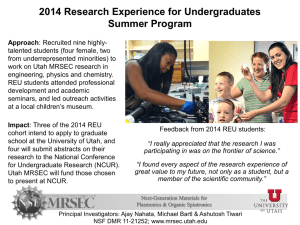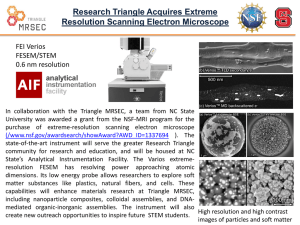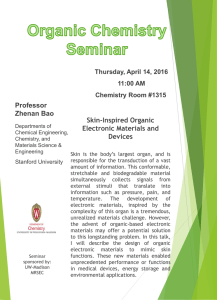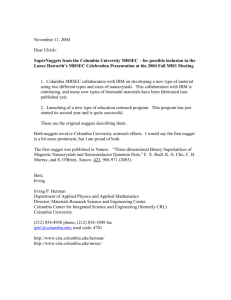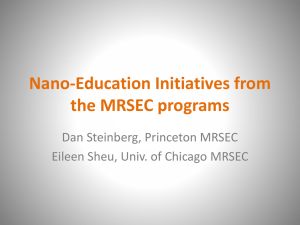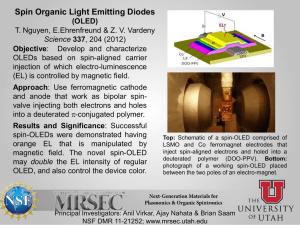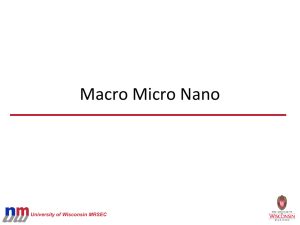Document 14458980
advertisement
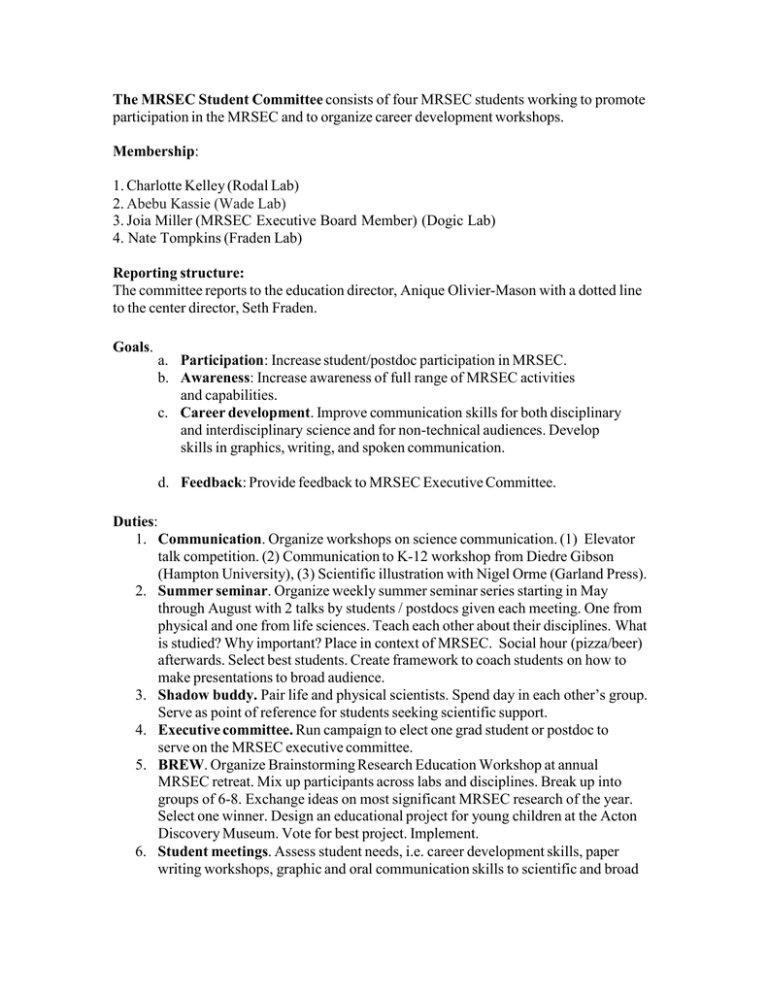
The MRSEC Student Committee consists of four MRSEC students working to promote participation in the MRSEC and to organize career development workshops. Membership: 1. Charlotte Kelley (Rodal Lab) 2. Abebu Kassie (Wade Lab) 3. Joia Miller (MRSEC Executive Board Member) (Dogic Lab) 4. Nate Tompkins (Fraden Lab) Reporting structure: The committee reports to the education director, Anique Olivier-Mason with a dotted line to the center director, Seth Fraden. Goals. a. Participation: Increase student/postdoc participation in MRSEC. b. Awareness: Increase awareness of full range of MRSEC activities and capabilities. c. Career development. Improve communication skills for both disciplinary and interdisciplinary science and for non-technical audiences. Develop skills in graphics, writing, and spoken communication. d. Feedback: Provide feedback to MRSEC Executive Committee. Duties: 1. Communication. Organize workshops on science communication. (1) Elevator talk competition. (2) Communication to K-12 workshop from Diedre Gibson (Hampton University), (3) Scientific illustration with Nigel Orme (Garland Press). 2. Summer seminar. Organize weekly summer seminar series starting in May through August with 2 talks by students / postdocs given each meeting. One from physical and one from life sciences. Teach each other about their disciplines. What is studied? Why important? Place in context of MRSEC. Social hour (pizza/beer) afterwards. Select best students. Create framework to coach students on how to make presentations to broad audience. 3. Shadow buddy. Pair life and physical scientists. Spend day in each other’s group. Serve as point of reference for students seeking scientific support. 4. Executive committee. Run campaign to elect one grad student or postdoc to serve on the MRSEC executive committee. 5. BREW. Organize Brainstorming Research Education Workshop at annual MRSEC retreat. Mix up participants across labs and disciplines. Break up into groups of 6-8. Exchange ideas on most significant MRSEC research of the year. Select one winner. Design an educational project for young children at the Acton Discovery Museum. Vote for best project. Implement. 6. Student meetings. Assess student needs, i.e. career development skills, paper writing workshops, graphic and oral communication skills to scientific and broad audiences, exposure to industry, workshops to learn techniques (e.g. biobootcamp for physical science students, Matlab for life science). 7. Annual election. Elect committee once a year. Membership from MRSEC affiliated postdocs and grad students.
